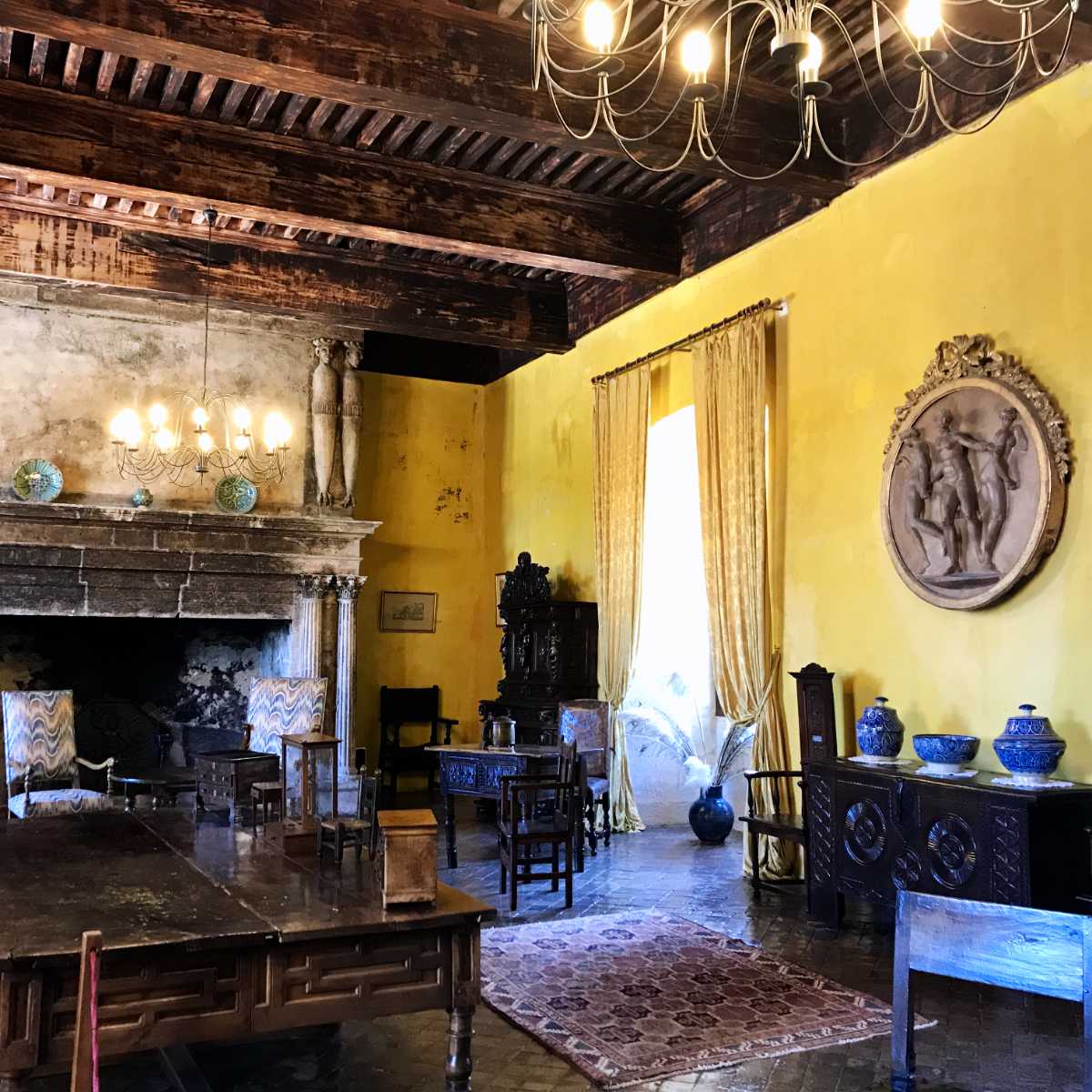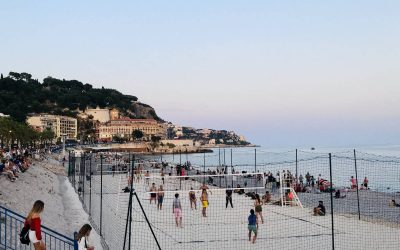Buying a house is a big step in anyone’s life. And buying a house in France, ooh la la! But knowledge is power. The buying process in France can seem daunting, but it is just a matter of knowing what to look for and what questions to ask.
Along with the property purchase legal process, there are certain particularities that you should watch out for when buying an individual house in France, especially if you are looking in the countryside.
French laws have well established rights and regulations dictating things like easements, contractors’ liabilities, surface restrictions, and more. Certain laws may also be applicable depending on the city or town you decide to live in.
In order to guide you in your house buying process, here is some French vocabulary that you may find useful:
- Agent immobilier – real estate agent.
- Notaire – an officer of the law who holds a recognised public office and who officializes the purchase and sale agreement.
- Mairie – townhall of the commune
- Acheteur – buyer
- Vendeur – seller
With a checklist of things to consider, including practical considerations, you should hopefully be able to launch your search with some measure of confidence. So let’s get to the top tips to consider when purchasing a home in France, shall we? Allons-y!
- 1. Find a house and put in an offer.
- 2. When placing an offer, check the price per square meter in the neighbourhood.
- 3. Read the diagnostics in detail.
- 4. Check the insulation and energy rating.
- 5. Check if the windows are at least double-panned.
- 6. You may want to pay for a structural survey.
- 7. Check if the house is connected to collective sewage and drainage.
- 8. Ask for a SPANC report in case of a fosse sewage tank.
- 9. Check where the drainage lines are running on the premises.
- 10. Look around for mold, cracks, and dry rot.
- 11. Evaluate the possibility of putting in central air and heating.
- 12. Review the paperwork for any easements and servitudes.
- 13. Right of Preemption by the Mairie
- 14. If the house is occupied by renters, check that they have left before you take ownership.
- 15. Beware of Farmers’ rights.
- 16. Check the maintenance of the garden.
- 17. Watch out for a well on the premises.
- 18. Check for leaks if the house has a terrasse.
- 19. If there is a swimming pool, check the permits.
- 20. Verify the territorial boundaries with a géomètre's report
- 21. Hire an architect or professional tradesperson.
- 22. Make sure your contractors have Décennie insurance.
- 23. Check the regulations if you are buying a historic home.
- 24. Noise Pollution: Check if the nearby church is ringing its bells at night.
- 25. Get your own Notaire.
- 26. Include any Suspensive Clauses in your offer.
- 27. Make sure you know what is included in the sale.
- 28. Send the downpayment to the Notaire.
- 29. Ask for the "Acte de Vente définitif" in advance
- 30. Visit the property on the day of purchase.
- 31. Understand what you are signing.
- How to buy a house in France? (Printable checklist)
1. Find a house and put in an offer.
One of the most important things to know when moving to France and buying a house is that you legally get 10 days “to reflect” on your decision. In essence, if you are visiting houses and find one that interests you, you can “reserve” the house by putting in a full price offer.
A full price offer is required to be accepted by the seller, as there are no overbids allowed. Once the offer is accepted, the buyer has 10 days to reflect, and can back out within those 10 days without penalty.
Thus if you put in an offer, and then bring your architect in to look at the necessary work, you can still withdraw your offer if the renovation budget is higher than accepted.
I should note that during the 10 days of reflection, you actually only get about six in reality. This is because if you back out, you have to send a letter with recorded delivery to arrive no later than the 10th day.
Generally French people do not sign for a house unless they are sure of what they are doing, but you should be aware that this legal delai de retraction does exist.
2. When placing an offer, check the price per square meter in the neighbourhood.
When deciding a price for your property, you can compare the Loi Carrez et surface au sol of your property. In France, many homes were built with sloping rooflines and basements that are not useable etc.
In order to allow comparability, a definition of surface habitable and surface loi carrez was established to ascertain what counts as “normal” living space and what should be included.
All property listings will provide the number of square meters, eg. 200 sqm loi carrez, inside the home so that you can compare the price per square meter to other homes in the neighborhood.
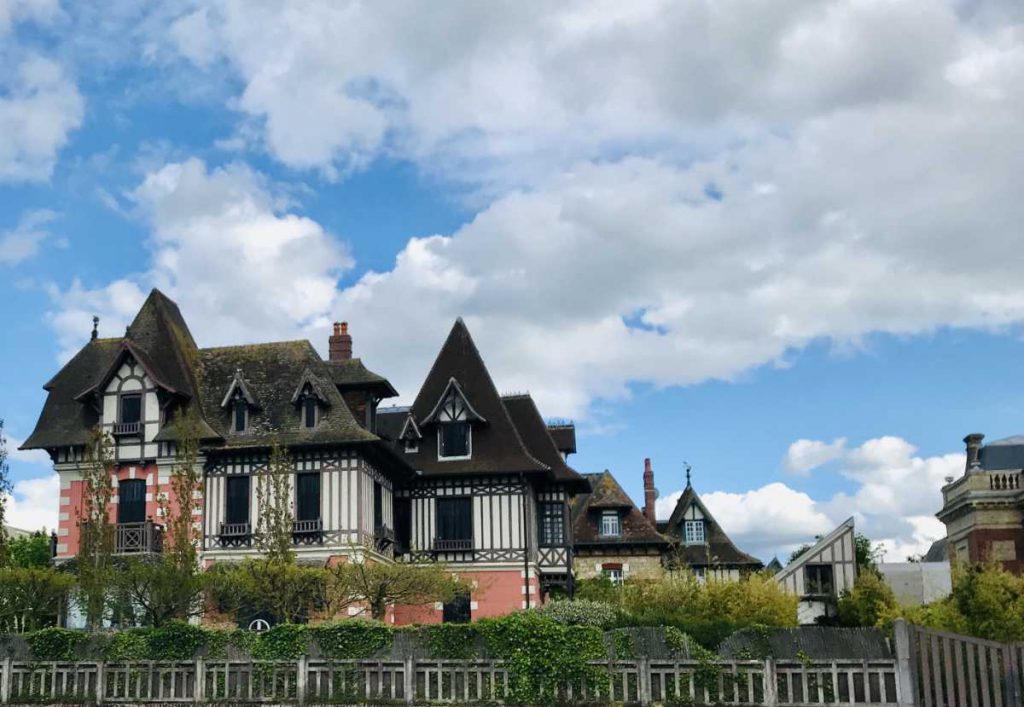
3. Read the diagnostics in detail.
Once you put in an offer, you should receive a detailed set of diagnostics. Diagnostics are required by law and will be paid for and provided by the seller. The diagnostics will usually include:
- energy performance (DPE),
- the risk of exposure to lead,
- the presence of asbestos,
- the condition of the electrical installations if it is over 15 years old,
- the condition of the gas installations if it is over 15 years old,
- the state of natural and technological risks.
- the presence of termites,
- the state of the non-collective sanitation installation for individual houses,
- and since June 1, 2020, noise must also be assessed, for properties located in noise zones around airports.
While the diagnostic report is strictly regulated and issued by licensed professionals, there are a number of things that can be beyond their scope.
4. Check the insulation and energy rating.
One of the things in the diagnostics is the Energy Rating, called Diagnostic de performance énergétique (DPE) and Indice d’émission de gaz à effet de serre (GES).
Following strict standards, both are rated on a scale of A to G. If you are planning to buy a property to rent it out, the problem however is that the French government has announced that houses and other properties with ratings below an E will no longer be allowed to be rented.
In essence, if you buy a property with a poor rating and wish to rent it out, you will have to make substantial renovations to bring the home up to current energy norms.
5. Check if the windows are at least double-panned.
In terms of energy savings, homes in France today are required to have double vitrage (meaning “double-pane”), at a minimum.
As windows throughout a house are one of the more expensive items to change, especially on an older home, check the house for single-pane windows.
6. You may want to pay for a structural survey.
The diagnostics report is not a structural survey, and potential issues with the stability of the building are beyond its scope. While a diagnostics report is paid for by by the seller, a survey will not be.
If you do want to get a structural survey, you will have to pay for it yourself. Keep in mind that either way, there is no legal recourse against the surveyor or the diagnostics professional in case of problems down the road.
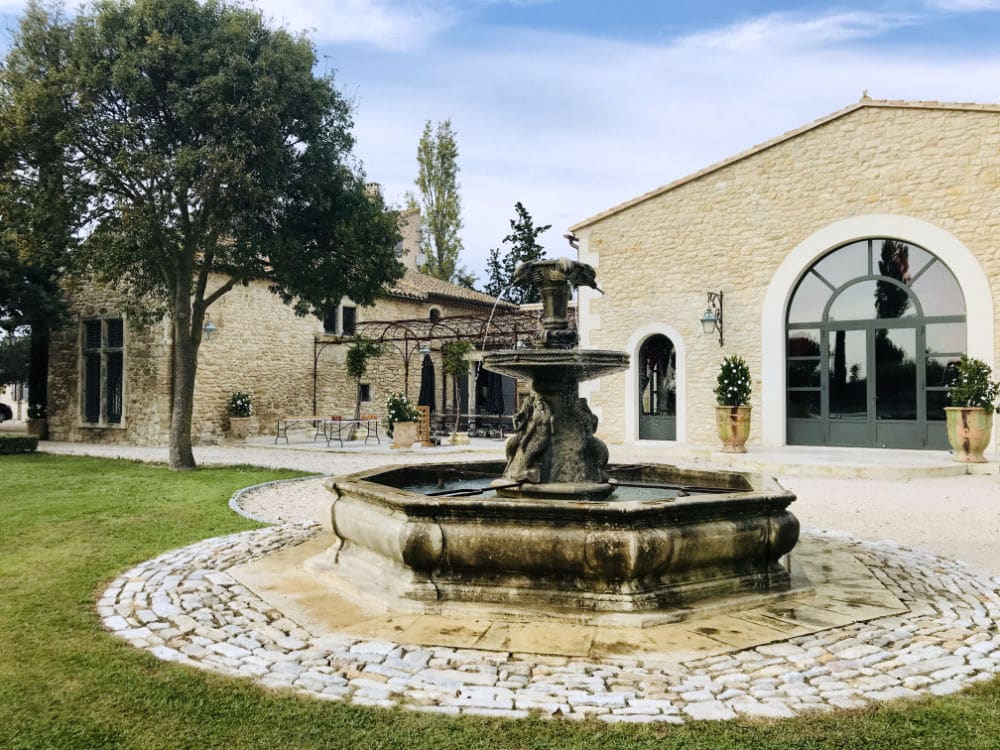
7. Check if the house is connected to collective sewage and drainage.
One of the big issues if you are buying a house in the French countryside is considering if the house is on collective main drainage to carry sewage away, or if it has a fosse sewage tank under the house.
If it is on main drainage, the maire, local water authority, or notaire should be able to verify it. For proof, you can ask to see the seller’s recent water bills.
If it on a fosse, the seller will likely have a single water charge for supply only. If on main drainage, there should be a double one, for supply and disposal.
8. Ask for a SPANC report in case of a fosse sewage tank.
If the house has a fosse sewage tank, the seller should provide a Spanc report (Le Service Public d’Assainissement Non Collectif), that reports any problems, how often it has to be emptied, if it is suitable for the size of the house, etc.
In some cases, the house may have had a fosse sewage tank, before it was connected to the main drainage. In this case, you will have to verify in the paperwork that this fosse tank has been filled in correctly.
Any shortcomings will have to be remedied either by the seller before purchase, or by the buyer who risks facing fines. Litigation in France can be minefield, and these sorts of issues often come up as vice cachés or hidden defects.
9. Check where the drainage lines are running on the premises.
If there is a fosse tank, you will want to verify where exactly it is. In certain cases, the fosse or drainage pipes were built under neighboring land to which you may not have access in case of issues.
Even if you do have an easement or right of access, your neighbor may not appreciate you digging up their flower gardens to access the sewage pipes, making for poor neighborly relations.
10. Look around for mold, cracks, and dry rot.
A hidden problem that can cost a lot of money is dry rot, cracks in the wall, or mold. Houses in France don’t usually have central air or heating, so poor ventilation can cause all sorts of problems.
These may be highlighted in the diagnostic report, but as I mentioned earlier there is no recourse against the diagnostiquer if they are not.
On your visit, be attentive to the state of the building on the inside and the outside. Some of the things to look for are:
- cracks
- damp spots
- unstable parquet
- cracked tiles
- water stains
- peeling paint or wallpaper
- symmetry of the walls and floor, etc
Examine the roof as well for moss and ask about recent leaks. If possible, you can ask to visit the attic to assess the condition of the frame.
In addition, look at the soil around the house to see if the soil appears moist and if the slope is running away from the house or towards it.
11. Evaluate the possibility of putting in central air and heating.
Since French homes don’t usually have air-conditioning or central heat, you may want to evaluate the possibility of putting it in as you are doing your walkthrough.
Certain walls will be load-bearing, and may not allow a vent to be installed. In addition, if your neighbors are close enough to be disturbed by the sound of your central air evacuation unit, you may need to get their permission for the noise pollution.
12. Review the paperwork for any easements and servitudes.
It is not unusual in France for there to be an easement of access or a servitude on the land surrounding old houses.
A neighbor may be required to go through your backyard to access his own. Water, electricity supply, or sewage lines may be running at your doorstep or below the land you are looking at.
Review all documents available at the local mairie (meaning “townhall”), as there may be all sorts of roadways, access rights, and other rights of way.

13. Right of Preemption by the Mairie
One of thing to be aware of when purchasing a house in France is that the local Mairie (townhall) has a droit de préemption. Every purchase and sale offer must be submitted to the Mairie to be validated by them.
This is usually done by the notaire on your behalf. And while rare, sometimes the Mairie says no. They may have other plans for the property and may choose to purchase it to build a new apartment building, extend train tracks, etc.
There is not much you can do in this situation, other than be aware that the risk of preemption exists.
14. If the house is occupied by renters, check that they have left before you take ownership.
France has very strong squatters’ rights and tenant protections. So if the home you are buying is currently occupied by renters, it may be difficult to evict them if they choose not to leave.
This is especially the case in winter, when it is even more difficult to remove tenants and squatters during the trêve hivernale between November to March.
Even a written agreement by the tenants to leave may not hold true once you take possession. One possibility is to delay your final signing and taking possession until the tenants have definitively vacated.
15. Beware of Farmers’ rights.
If the property you are looking at is surrounded by farmland, there may be a prescribed easement or servitude that is not on any legal documentation.
In France, if the neighboring farmer regularly lets his cows feed on your land because you don’t want to mow the lawn, over time he effectively gains the right to continue to graze his cattle there. Other examples are harvesting the land for hay, or picking the fruit from your garden.
“Prescription” refers to the period of time after which a legal action, whether civil or criminal, is no longer admissible. Prescription is a legal method of acquiring or extinguishing rights by the simple fact of their possession for a certain period of time.
Even a neighbor who you let park his/her vehicle on your property, may over time gain the right to park there.
In order to ensure that all such issues are cleared up before you purchase the house, the vendors need to send a letter in writing by recorded delivery, stating that the property has been sold and that the verbal agreement has ended.
In return, the neighbour needs to agree and sign this letter confirming that any rights have been relinquished. The signed letter needs to be provide to the notaire before the final acte de vente takes place.
16. Check the maintenance of the garden.
Even if you don’t have a green thumb, you should check the general condition of the garden. Is it well landscaped? Does the earth look moist indicating water evacuation problems?
In addition, weeds like japanese knotweed are common in France and can damage buildings, while being quite expensive to remove.
17. Watch out for a well on the premises.
If you are purchasing a home in the French countryside, one interesting quirk is if you happen to find a well on the premises. Even if the well is closed, old laws mean that your neighbors may have access rights to it, and thus to your property.
In certain cases, the neighbors may even have keys to your garden in order to be freely able to “access the water”. If you do notice a well on the premises or in the paperwork, ask the notaire if there are easement rights that go along with that well.
18. Check for leaks if the house has a terrasse.
If the house has a terrasse on top of the building, check to see if there are any water drainage issues under the decking. Poor drainage may lead to problems with the underlying roof, which can be expensive to repair.
19. If there is a swimming pool, check the permits.
If the home has a swimming pool, check that it has the necessary permits with the mairie and the notaire. When inspecting the pool, ask for:
- necessary legal permits,
- date of installation,
- compliance with safety standards (fence around pool, etc.),
- type of filtration,
- last time it was serviced, etc.
If you have a family with children, make sure the pool is secure.
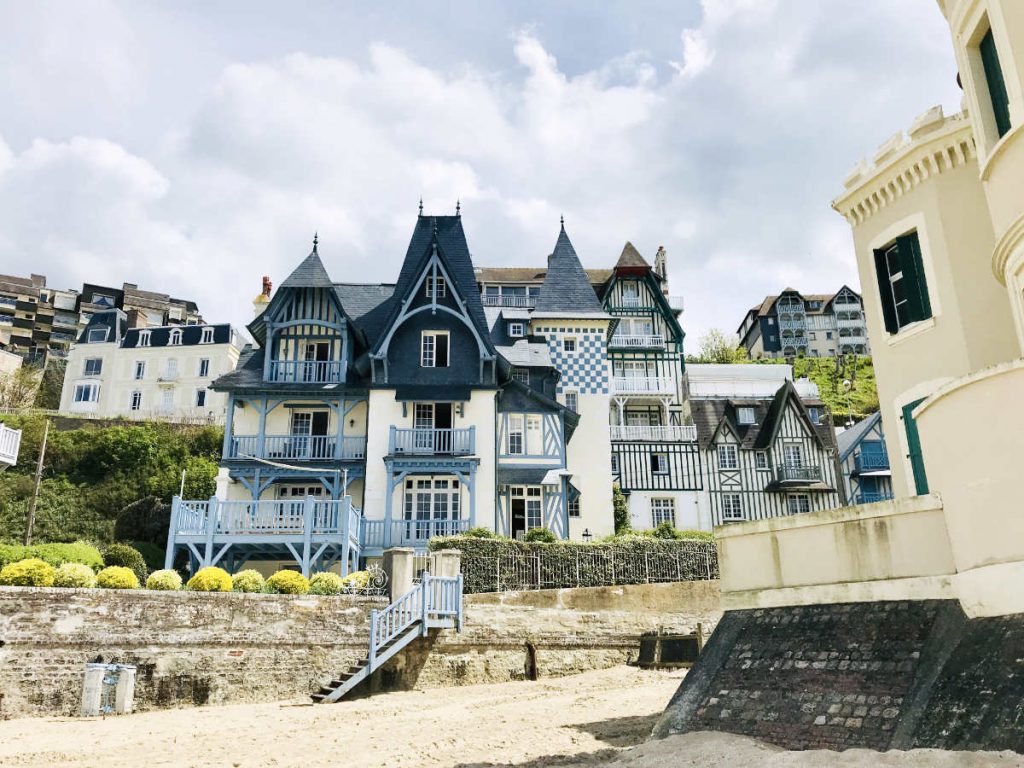
20. Verify the territorial boundaries with a géomètre’s report
If you are buying a home with a big piece of land attached to it, you will want to review the notaire’s and mairie’s records to see what exactly it is you will own.
In the case of a potential dispute with a neighbour, you may need a géomètre-expert to survey the boundaries for you. In addition, a géomètre is able to:
- measure the area of land establishing a legal marker on the land,
- carry out administrative procedures such as apply for an urban planning certificate for a construction, or put together an application for a planning permission,
- inform about future potential construction on the land.
21. Hire an architect or professional tradesperson.
If you are looking to purchase a house that requires some renovation, you will want to factor those costs into the your budget. The price per M2 for renovation in France can average between €500-1000/m2, if not more depending on the materials and rehabilitation required.
In addition, it is not easy in certain remote parts in the French countryside or in busy metropoles like Grand Paris, so you may have to adjust your timelines.
Before hiring an architect, tradesperson, or contractor, you should agree on the work involved and obtain a devis (price estimate). Your devis should include:
- the date of the devis (price estimate),
- the name and address of the company,
- the name of the client,
- the start date,
- the duration of the service,
- the estimated completion date,
- the payment terms (eg. 50% at the start, 25% in the middle, 25% at the end of project),
- the detailed account of each service and product, in quantity and unit price the price labor,
- where applicable travel costs,
- the total amount payable excluding VAT tax (HT) and all taxes included (TTC).
Be aware that regardless of what you have agreed, the artisans and trades often juggle jobs waiting for parts, etc. Patience is a virtue, or so they say.
22. Make sure your contractors have Décennie insurance.
Contractors in France can be expensive. Between French high taxes and social charges, artisans like registered plumbers, electricians, and builders need to pass on those higher costs to customers.
While it may be tempting to cut corners and hire “off the books”, you should know that in France, all construction and repair work is covered by “la responsabilité décennale“, meaning that it is guaranteed for 10 years.
As such, artisans have “décennie insurance” and should be able to show their registration for this insurance. This way you know that you are covered for any damages.
23. Check the regulations if you are buying a historic home.
If you intend to do major works to the exterior of the home, you will have to check at the local mairie if there are any restrictions on paint color, etc. for a historic home.
Even if the home itself is not historic, it may be in a historic district and need to abide by certain standards. A friend of mine went to replace his leaking roof in a newer home in a small French village. But because his house was near the local historic church, he was required to use the same type of tiles as the church, costing nearly 4 times as much.
In addition, if your seller has done some exterior work modifying the appearance of the property, check that they did have the necessary permits from the Mairie to do so.
24. Noise Pollution: Check if the nearby church is ringing its bells at night.
In rural France, that beautiful old church at the end of the street may be a nuisance sonere (meaning “noise hazard”).
The problem in many small French villages and towns is that they still operate on “farmers’ hours”. This means they can start ringing at 5am in the morning. I found this out the hard way at an otherwise wonderful holiday home rental.
Stories abound of buyers who purchased a home and then found out that the townhall and church refuse to change the bell ringing schedule.
You should also check what else is around the home you are thinking of buying that could potentially impede you from enjoying your property in tranquility.
25. Get your own Notaire.
The notaire is a legal specialist who is considered neutral between the two parties who handles the sale and does all the required filings with the governmental authorities.
Although considered neutral, certain notaires may have long-standing relations with the seller, and so inadvertently may look out more for their interests than your own.
You may be well-advised to get your own notaire, as there is no increase of fees for doing so. In case of two notaires, the notary fees are split between the two so there should be no additional fees.
Having your own notary will also allow you to better plan how you wish to purchase the house based on your personal situation.
France has strict inheritance laws, so many people choose to purchase property in a type of corporation called an SCI. If you are married, they can also advise you based on the marriage regime you would fall under, taking into account any prenuptial agreements, step-children, etc.
26. Include any Suspensive Clauses in your offer.
When putting in an offer on a house in France, you can include several clauses suspensives or conditions required to fulfil the sale. If you need a mortgage to complete the sale, the requirement of one would be drafted up by the notaire or the real estate agent as a clause suspensive.
In addition, if you agree with the vendor that certain works will be completed by the seller before you take ownership, these can also be included as a clause suspensive. In case of non-completion, the Notaire can retain a sum from the purchase price to confirm that the work was done.
27. Make sure you know what is included in the sale.
The internet is littered with stories of people stripping the house of all items such as lightbulbs, curtain rods, and even entire kitchens.
Unless it is specifically written in the compromis de vente or acte de vente, it could potentially be removed by the sellers during their move.
28. Send the downpayment to the Notaire.
A few days before the final signatures and completion of home purchase, the notaire will communicate the RIB where the funds should be transferred. Triple-check that you are indeed transferring the funds to your notaire.
In addition, if you have a mortgage, you may have to communicate this information to your mortgage company.
29. Ask for the “Acte de Vente définitif” in advance
The Acte de Vente contract can be 50-100+ pages long and must be in French. I highly recommend asking for a copy in advance so that you can read it at leisure and ask for clarification for any items.
Things such as long-standing easements, or restrictions from the Mairie can pop up at the last minute, so this will allow you to ask any questions.
30. Visit the property on the day of purchase.
You can insist that you be allowed to visit the property the morning of the final signature on the acte de vente, to ensure that the property is as you expect it.
31. Understand what you are signing.
If you are not comfortable in French, you may want to bring a translator to help you. The cost may be well worth it. In certain cases, the notaire may insist that you have a certified translator with you.
In any case, this is the Acte de vente définitif, so you are now a proud owner of a house in France! Félicitations!

So are you feeling intimidated by the thought of becoming a homeowner in France. It should be said thousands of foreigners and French people become first-time owners ever year, so it is not as scary as you think (as long as you have good legal counsel, that is).
If you enjoyed this article, you can save the free printable checklist below. It is in English with French translations, so that you know what to ask for. In addition, you may want to read more about interesting differences between French houses and ones you may be used to. A bientôt!
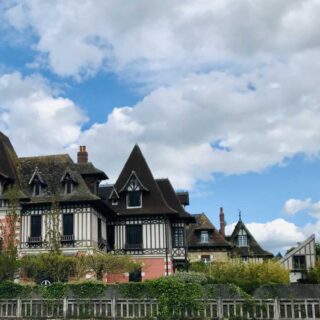
How to buy a house in France? (Printable checklist)
Equipment
- 1 camera
- 1 pen
- 1 checklist
Instructions
Questions on House details
House Address :
Contact :
Visited on :
Comments:
Sales Price :
Sales Price per Sqm:
Similar prices in the area :
Real estate agency fees:
Estimated renovation costs :
Notary fees :
TOTAL Purchase Price :
Annual Costs- Taxe foncière
- Taxe d'Habitation
- Syndic fees (condominium)
- Other
Diagnostics- Energy performance (DPE) rating? (Classement des performances énergétiques?)
- Gas emission index? (Indice d'émission de gaz à effet de serre (GES))?
- Heating? (Chauffage : Gaz, Electricité, Chaudière?)
- Gas or electrical stove? (Cuisinière à gaz ou électrique?)
- Cracks in the wall? (Des fissures dans le mur?)
- Condition of exterior? (Etat extérieur?)
- Water pressure in the kitchen, bathrooms, 2nd floor? (Pression de l'eau dans la cuisine/salle de bains/2eme etage?)
- Drainage issues? (Problèmes d'évacuation?)
- Slope of the gardens and exterior? (Pente des jardins et extérieur?)
- Double-paned windows? (Des fenêtres à double vitrage?)
- Evidence of rust? (Signe de rouille?)
- Risk of exposure to lead: When was building built? (Risque d'exposition au plomb ? : Batiment construit en quelle année?)
- Presence of asbestos? (Présence d'amiante?)
- Condition of the electrical? (État de l'électricité?)
- Condition of the gas installations? (État des installations de gaz?)
- Presence of termites? (Présence de termites?)
- Need for structural survey? (Besoin d'une étude structurelle?)
Insulation, Ventilation, & Leaks
- State of the isolation? (Etat d'isolation?)
- Internet fibre installed? (Fibre Internet installée?)
- Cracks in the wall? (Des fissures dans le mur?)
- Uneven paint? (Peinture inégale?)
- Signs of mold or dry rot? (Des signes de moisissure ou de pourriture sèche? Pourriture cubique?)
- Possibility of central air and heat? (Possibilité de climatisation centrale et de chauffage?)
- Floors in good condition? (Des sols en bon état?)
- Floors slanting? (Des sols inclinés?)
Exterior
- State of the Roof? (État du toit?)
- State of the exterior? (Etat de l'extérieur?)
- State of terrasse or balcony? (Etat terrasse ou balcon?)
- Cracks in exterior walls? (Des fissures dans le murs exterior?)
- Ground slanting towards house? Water drainage after rain?) (Terrain inclinés vers maison ? Evacuation d'eau après la pluie?)
- Moisture or weeds in the garden? (Humidité ou mauvaises herbes dans le jardin?)
Sewage and Water drainage
- Connected to main sewer drainage? (Connecté au système centrale de canalisation?)
- Annual drainage bill? (Combien pour la facture de vidange annuelle?)
- If not, SPANC Report for fosse sewer system? (Si non, rapport SPANC pour le système d'égout à fosse?)
Other points to consider
- Easements and servitudes? (Servitudes et droits d'accès?)
- Well on the premises? (Puit sur le terrain?)
- Farmers' rights? (Droits des agriculteurs?)
- Swimming pool on property? Right to add a swimming pool? (Piscine sur la propriété? Piscinable?)
- Occupied by renters? (Occupé par des locataires?)
- Any additions, extensions, alterations authorized by the mairie? (Des ajouts, extensions, modifications autorisées par la mairie?)
- Property boundaries? (Limites de propriété?)
- Historic home regulations applicable? (Règlement de maison historique applicable?)
- Nearby noise pollution? (Pollution sonore à proximité?)
Notaire, Tradespeople, Mayor's office
- Suspensive conditions to be included in offer?
- Mortgage condition?
- Seller to complete works?
- Contractors have décennie insurance?
- Items included in the sale?
- Approval by the Mairie?
- Date of final sale act signing?
- Need for translator?
- Downpayment made?
- Final points to consider?
